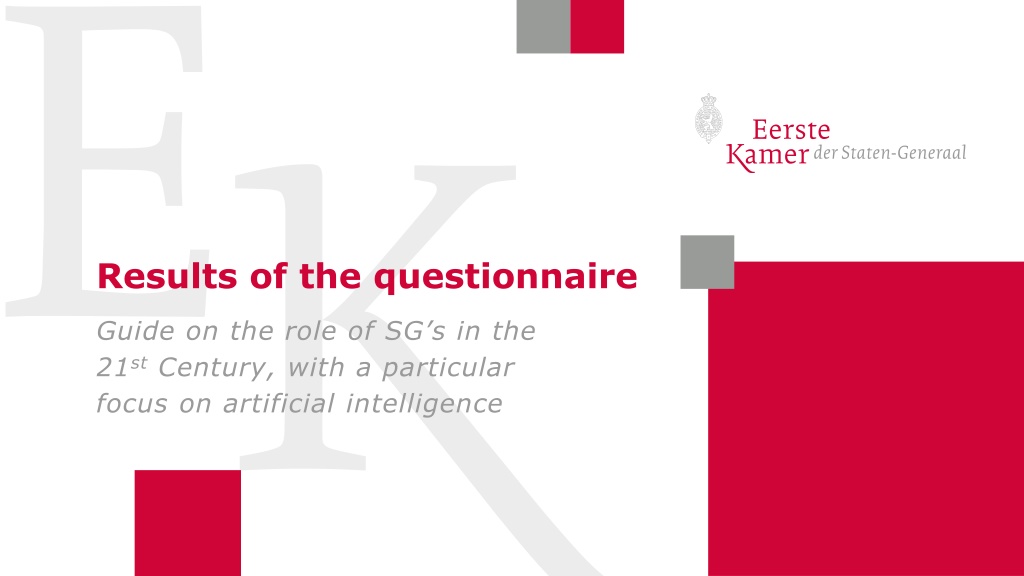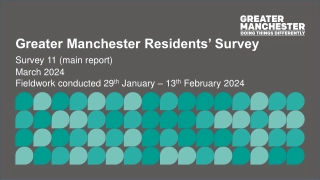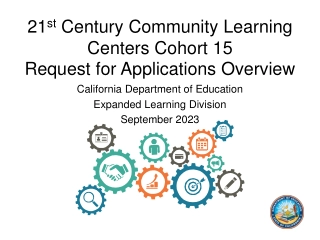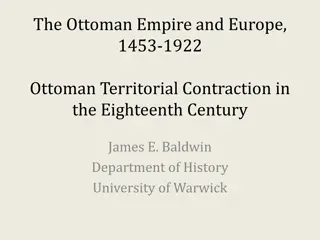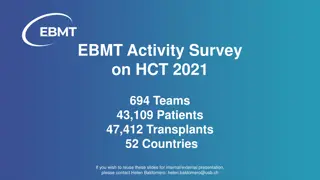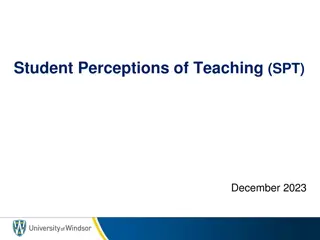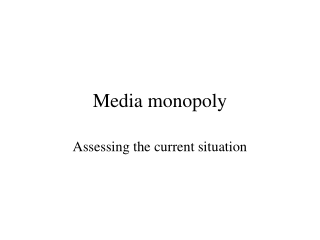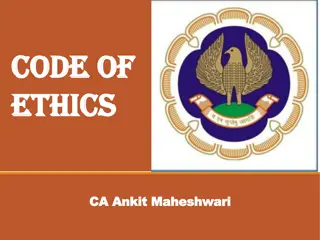Role of Secretaries General in 21st Century Parliaments with Focus on AI Survey Results
Results from a questionnaire completed by 36 Secretaries General worldwide highlight the growing impact of artificial intelligence (AI) in parliamentary operations. Key findings include the increasing use of AI in parliaments, expectations on AI's future impact, governance challenges, and evolving roles and skills required, shedding light on the changing landscape of parliamentary leadership in the age of AI.
Download Presentation
Please find below an Image/Link to download the presentation.
The content on the website is provided AS IS for your information and personal use only. It may not be sold, licensed, or shared on other websites without obtaining consent from the author. Download presentation by click this link. If you encounter any issues during the download, it is possible that the publisher has removed the file from their server.
Presentation Transcript
Results of the questionnaire Guide on the role of SG s in the 21stCentury, with a particular focus on artificial intelligence
Background information The questionnaire was completed by 36 Secretaries General (or their deputies) spread all over the world By unicameral parliaments, lower houses and upper houses. Important themes: Safety / (cyber)security Sustainability / green parliament Fake news Thinking of new generations (workforce culture, remote working, etc.) Focus on AI 2 Guide on the role of SG s in the 21stCentury, with a particular focus on artificial intelligence
The advent of AI and big data 55% of parliaments are using AI For instance, automatic transcription of debates and chatbots 14% of the parliaments have been affected by AI technologies, mostly by manipulating videos or photographs. 68% do not have any norms 3 Guide on the role of SG s in the 21stCentury, with a particular focus on artificial intelligence
The impact of AI and big data 63% expect AI will have a major impact. Most parliaments are somewhat prepared, but few are (very) well prepared (Bahrain, Bangladesh, and Slovakia). 70% expect the parliament s ICT systems will have to be renewed. 88% expect the ICT systems used in the parliament to be sufficiently secure. 4 Guide on the role of SG s in the 21stCentury, with a particular focus on artificial intelligence
Governance of AI in parliaments 79% of the parliaments did not yet establish governance for AI. Some parliaments have a parliamentary committee (the Netherlands, the Republic of Ireland, and Uruguay) Some parliaments have a strategic plan or digital parliament development Plan for 2023-2027 (Sweden, Italy, Cambodia, Germany, Thailand, Zambia). Several other parliaments are still drawing up a plan. 5 Guide on the role of SG s in the 21stCentury, with a particular focus on artificial intelligence
The role of the Secretary General 58% expect the role of the SG will change with the advent of AI and big data. Most expect the relationship with MPs to remain the same. Most important value for SG: Transparency Important skills for SG: knowledge of AI, critical thinking, problem-solving, and digital leadership skills. 6 Guide on the role of SG s in the 21stCentury, with a particular focus on artificial intelligence
The role of the parliamentary staff The parliamentary staff will have to adopt different working practices 85% of the parliaments have not sufficient knowledge 67% foresee problems in attracting staff with a knowledge of AI and big data Important skills for staff: use of new technologies, ethics, and privacy, cybersecurity principles 43% expect jobs (mainly operational jobs) to disappear in the future. 7 Guide on the role of SG s in the 21stCentury, with a particular focus on artificial intelligence
